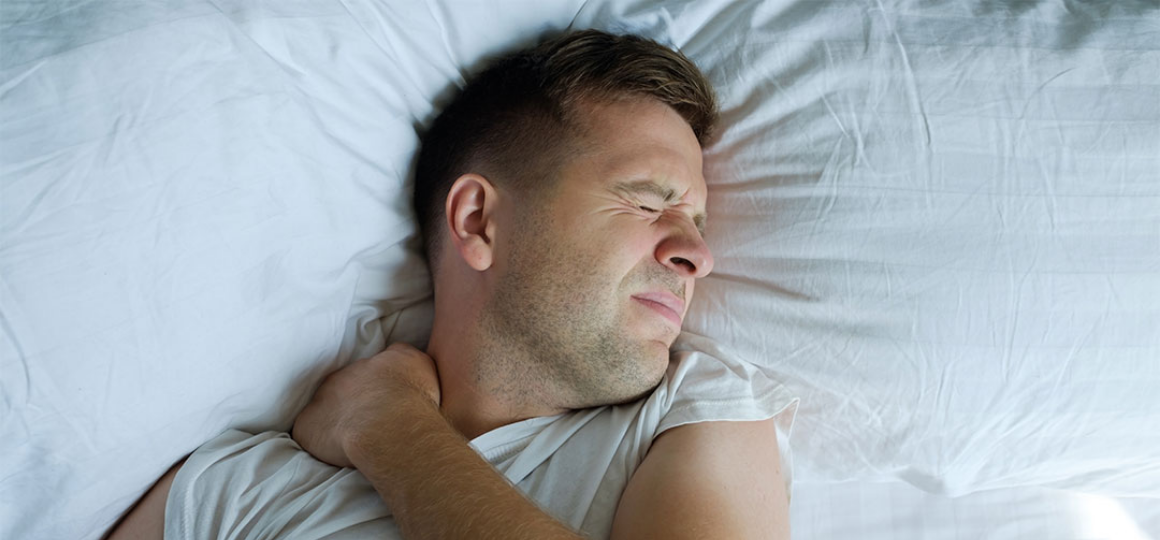Insufficient sleep:
This leads to weight gain
Sleeping Less Is Destroying Your Physical and Mental Health
1. Reduces brain Functioning: Sleep is essential for memory, problem-solving, and decision-making. When you don’t get enough sleep, it disrupts your brain’s ability to consolidate and process information. You may experience difficulties in concentration, learning, and creative thinking, which can impede your overall mental performance.
2. Decreases Muscle Recovery: During deep sleep, your body undergoes essential repair and recovery processes. This includes muscle tissue repair and growth. When you’re sleep-deprived, your body has less time to engage in these vital activities. As a result, your muscles may not recover as efficiently, leading to fatigue, weakness, and potential issues with physical performance.
3. Causes Mental Health Issues: Prolonged sleep deprivation can contribute to mental health problems. It’s often linked to mood disorders such as depression and anxiety. Sleep is critical for emotional regulation and maintaining a positive mental state. When you consistently lack sleep, your emotional well-being can suffer, potentially leading to more severe mental health conditions.
4. Increases Chances of Disease: Chronic sleep deprivation has been associated with an increased risk of various health conditions. These include heart disease, diabetes, and even a weakened immune system. When your body doesn’t have the opportunity to rest and repair, it can become more susceptible to illnesses and chronic diseases.
10 Minutes of Sunlight
“Every morning, view sunlight for
10+ minutes.”
“Viewing a low solar angle sets
your circadian tempo, making it
easier to fall asleep at night.”
“Make a 10-minute morning walk
with sunlight an atomic habit.”
Commit to a daily ritual of basking in the morning sunlight for at least 10 minutes. Taking in the gentle glow of the sun at a low solar angle can help set your circadian tempo, making it easier to fall asleep at night. By making this 10-minute morning walk with sunlight a consistent habit, you’re nurturing your overall well-being and creating a foundation for healthier sleep patterns.
10 Hours Without Caffeine

Your 3 p.m. cappuccino and pre-
workout is disrupting the
quality and depth of your sleep
at night.
Caffeine’s half-life is 6 hours, so
an afternoon coffee is still in your
system at 11 p.m.
Aim to cut off caffeine at least 10
hours before bed.
That afternoon cappuccino and pre-workout can disrupt the quality and depth of your nighttime sleep. Caffeine‘s half-life, the time it takes for half of it to be metabolized, is about 6 hours. This means that even an afternoon coffee is circulating in your system as late as 11 p.m., potentially affecting your ability to fall asleep and sleep deeply.
To safeguard your sleep, aim to cut off caffeine intake at least 10 hours before bedtime. By doing so, you can help ensure a restful and uninterrupted night’s sleep, free from the lingering effects of caffeine.
4 Hours Without Exercise

Intense exercise too close to bed
keeps cortisol levels high,
making it harder to fall asleep.
Aim to exercise in the morning if
you can.
Or at least schedule your
workouts so they aren’t within 4
hours of bedtime.
Engaging in extreme exercise too close to bedtime can lead to elevated cortisol levels, making it challenging to fall asleep. To optimize your sleep quality, consider the following strategies:
Ideally, aim to exercise in the morning. This allows your body to benefit from increased energy and alertness during the day, with sufficient time to wind down and prepare for sleep in the evening.
If morning workouts aren’t feasible, schedule your exercise sessions so they conclude at least 4 hours before bedtime. This buffer period allows your cortisol levels to return to normal, promoting better sleep initiation and restfulness.
By being mindful of the timing of your workouts, you can enjoy both the physical benefits of exercise and the rejuvenating effects of a good night’s sleep.
3 Hours Without Food

When you digest food, your
body’s internal thermostat heats
up.
But your body temperature
needs to DROP to fall asleep.
Cut off food 3 hours before bed
to improve the quality of your
sleep and hormone health.
Digesting food naturally raises your body’s internal temperature, but for restful sleep, your body needs to cool down. To enhance both the quality of your sleep and hormone health, consider this practice:
Refrain from consuming food within 3 hours of bedtime. This allows your body’s temperature to gradually lower, supporting more restorative sleep.
By giving your body this fasting window before sleep, you can promote a deeper and more rejuvenating night’s rest while supporting overall hormone health.
2 Hours Without Work

Your mind needs time to rest and
wind down before sleep.
Be done with your work at least 2
hours before bed, and find a
a nighttime routine that permits you
to wind down and relax.
In preparation for a good night’s sleep, it’s crucial to provide your mind with a chance to unwind. To achieve this, adhere to the following guidelines:
Conclude your work-related tasks at least 2 hours before bedtime. This break enables your mind to transition from a state of productivity to relaxation and tranquility.
Craft a nighttime routine that suits you, allowing you to wind down and feel calm. By making this adjustment, you can promote the ideal conditions for a peaceful night’s sleep and better overall well-being.
1 Hour Without Blue Light

Blue light from your devices
signals your brain it’s time to be
alert and awake.
But this disrupts your ability to
fall asleep.
Cut off screens for at least an hour
before bed, or at least invest in
blue light glasses.
The blue light emitted by your devices signals to your brain that it’s time to be alert and awake, disrupting your ability to fall asleep. To ensure a smoother transition into restful slumber, consider the following steps:
Disconnect from screens at least one hour before bedtime. This pause allows your brain to naturally prepare for sleep without the interference of stimulating blue light.
Alternatively, invest in blue light glasses to mitigate the effect of screen time on your sleep quality.
By making these efforts, you can create an environment conducive to a quiet night’s sleep and safeguard your overall well-being.
If you follow this protocol and aim for 8-10 hours a night, I promise you’re brain and body will feel better than ever.









